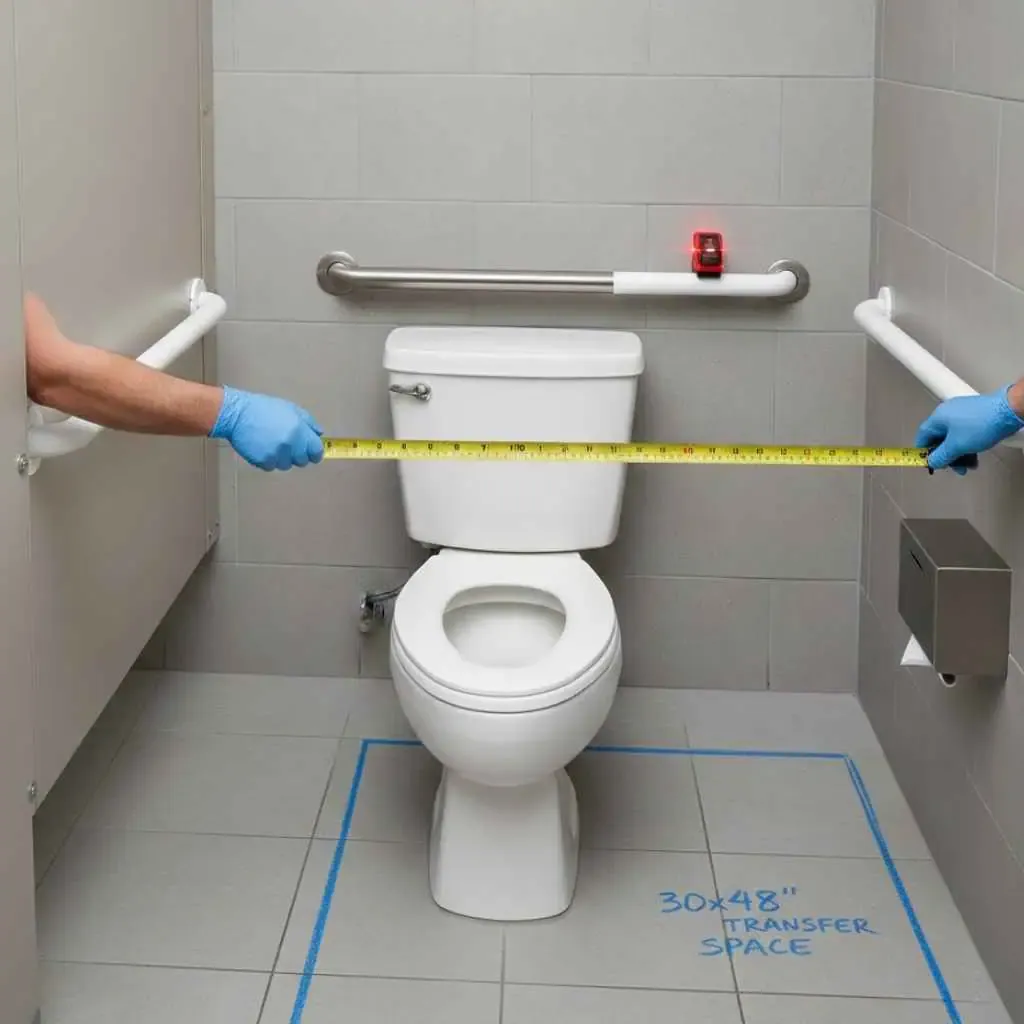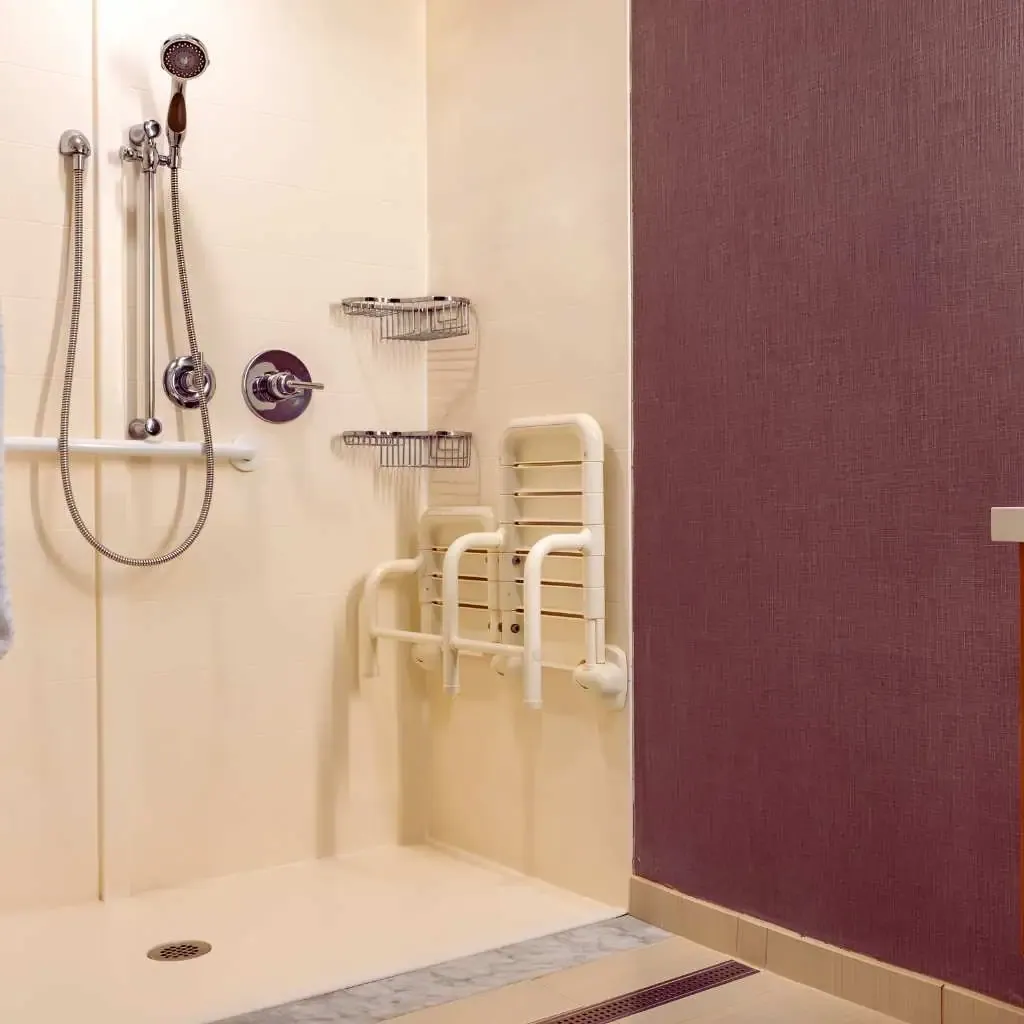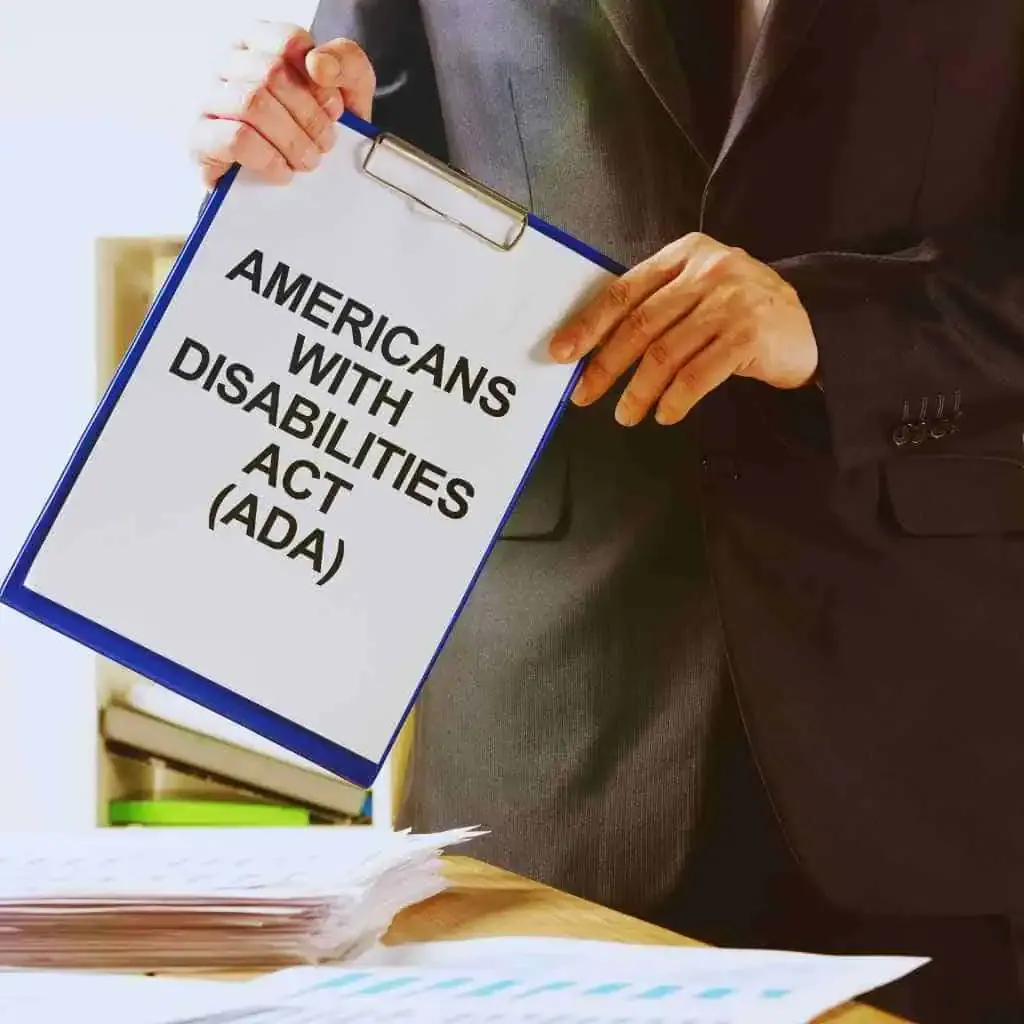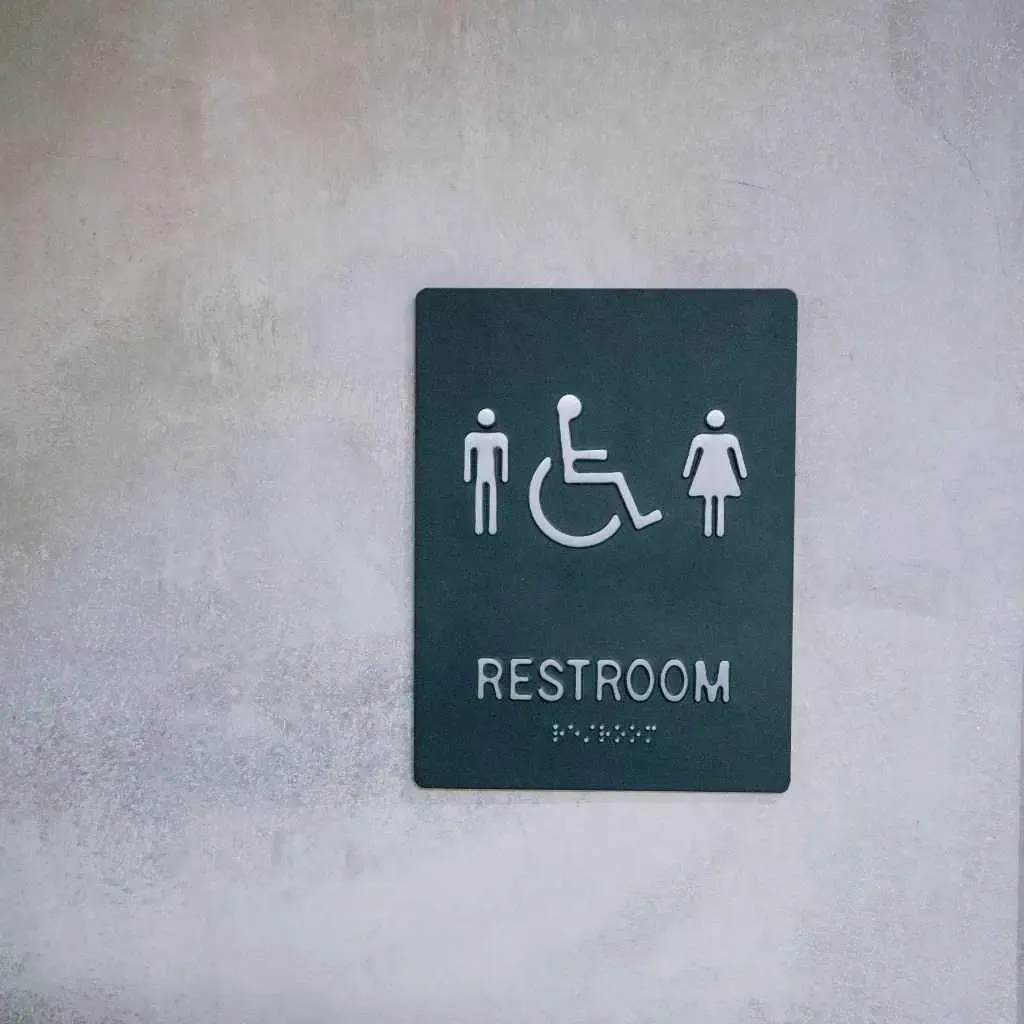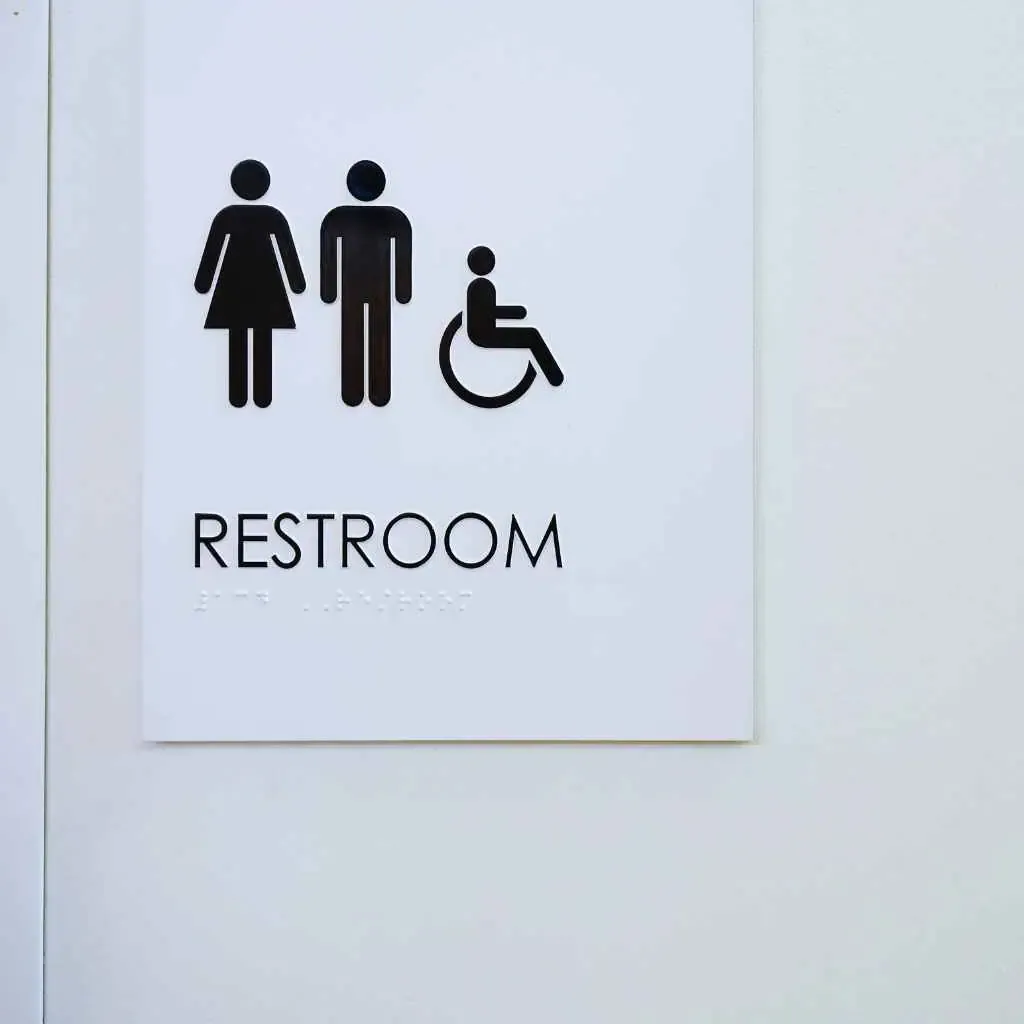Fresno Businesses | Avoid ADA Fines with Annual Compliance Maintenance Plans
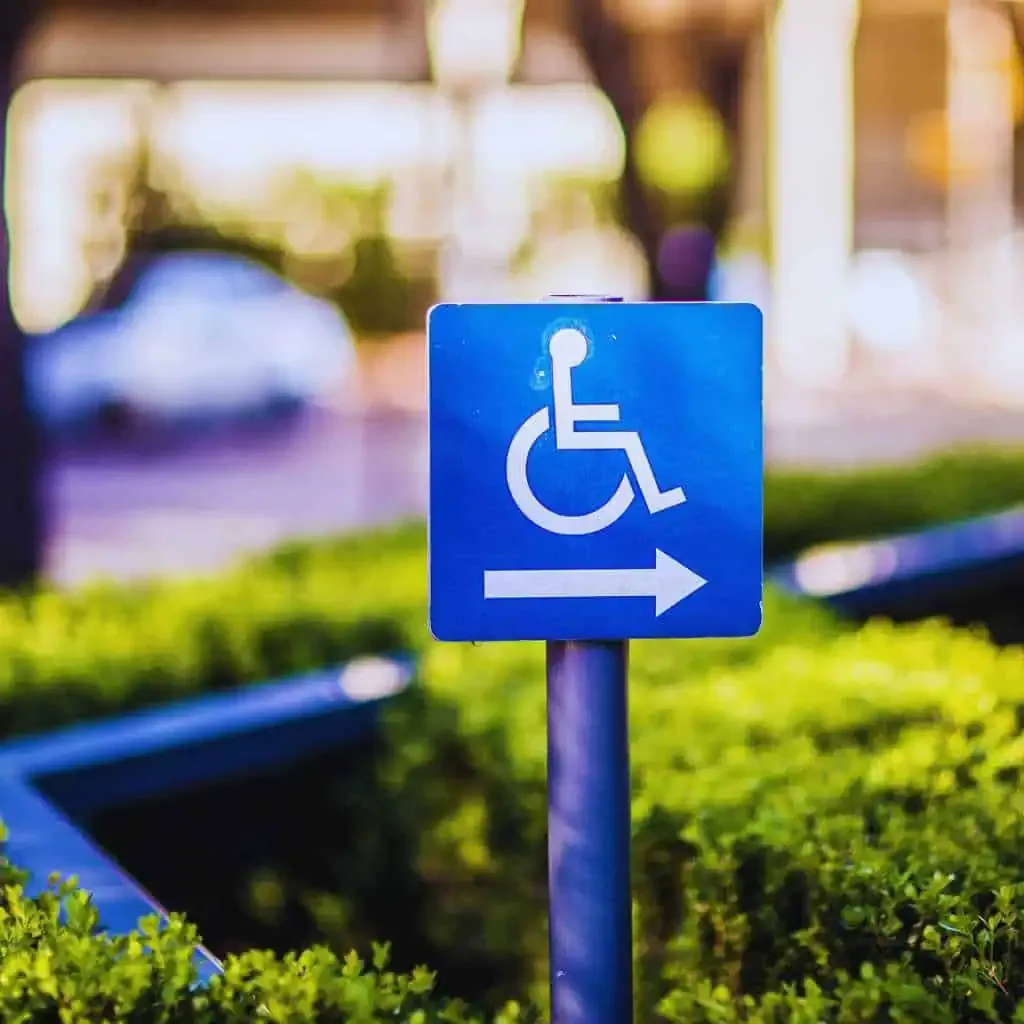
Most business owners in Fresno think of ADA compliance as a one-time project—get inspected, fix a few things, and move on. The reality is, that mindset is one of the biggest legal risks you can take.
ADA requirements in California, especially under Title 24, don’t just apply at the time of construction or remodel. They apply every day your doors are open. If the slope in your parking lot shifts after repaving, or a contractor installs a new counter that’s too high, you could fall out of compliance without even knowing it.
And here’s where it gets serious: lawsuits don’t care whether you knew or not. Fresno has seen a steady rise in ADA-related legal action over the past few years. Restaurants, retail shops, medical offices—no business type is exempt. Plaintiffs don’t need to prove intent. All they need is a valid violation.
This guide is built for business owners who want to stay ahead of that risk. We’ll break down what annual ADA compliance maintenance plans include, how they protect you, what they cost, and how to find a consultant who knows Fresno building code inside and out. Because staying compliant shouldn’t be about guessing. It should be about having a plan.
What Fresno Businesses Should Know Up Front
Before we go deep into the legal details and cost breakdowns, here are the core insights every business owner in Fresno should understand about ADA maintenance plans:
ADA violations are strict liability
It doesn’t matter whether you meant to break the rules or not. If your business is out of compliance—even by accident you can be sued.Ongoing compliance is not optional
One-time inspections don’t protect you forever. Any future physical changes, like a new countertop or repaved parking lot, can create new violations.CASp reports can reduce your legal risk
Having a valid report from a Certified Access Specialist shows you’re making a good-faith effort. It won’t make you lawsuit-proof, but it can limit exposure and improve your position in court or during settlement talks.Fresno is a hot spot for ADA lawsuits
Businesses in high-foot-traffic sectors like restaurants, retail shops, and medical clinics—see the most ADA-related legal action in this area.Annual plans offer real return on investment
Compared to the cost of retroactive fixes, legal fees, and lost business time, a well-run annual compliance plan is often the cheaper and smarter path.
Most importantly, ADA compliance isn’t just about avoiding fines it’s about making sure every customer can safely and comfortably access your services. That includes locals, tourists, elderly customers, and anyone living with a disability.
Why ADA Maintenance Plans Matter for Fresno Businesses
ADA maintenance plans aren’t just a good idea—they’re a form of risk management. For Fresno businesses, especially those operating public-facing facilities, staying compliant isn’t something you check off once. It’s an ongoing responsibility shaped by evolving regulations, building conditions, and how people actually move through your space.
What this really means is: ADA compliance isn’t static. Let’s say your parking lot was compliant in 2018. If the surface has deteriorated since then, the slope or surface texture may now violate current ADA or California Title 24 standards. The same goes for door hardware, bathroom fixtures, or even signage—minor changes can lead to major exposure.
Here’s how maintenance plans help:
Catch small issues before they become legal problems: Regular inspections flag surface cracks, faded markings, or non-compliant handrails early—before someone files a complaint.
Prevent unintentional violations from daily wear and tear: Accessibility gets compromised over time. Maintenance plans create a structured way to catch gradual changes.
Align with California’s proactive legal culture: Fresno courts and inspectors don’t just look at your original compliance—they consider whether you’ve maintained it. A written plan shows good faith and due diligence.
Reduce liability in case of ADA-related lawsuits: Having documentation of scheduled reviews and corrective actions can support your defence if an accessibility claim is made.
For retail stores, restaurants, medical offices, and apartment complexes in Fresno, the risks go beyond fines. Non-compliance can mean lawsuits, reputational damage, or lost business from disabled patrons who simply can’t access your space. And in California, serial ADA plaintiffs have made headlines targeting businesses without even visiting in person—just reviewing public records and Google Maps.
Maintenance plans make compliance sustainable. They provide clarity for property managers, simplify budgeting for future upgrades, and can be integrated into your larger facilities management workflow.
If you don’t already have a system in place for reviewing your ADA elements yearly, now’s the time. You don’t need to do it alone either—a certified CASp inspection firm can help you build a legally sound, site-specific maintenance plan tailored to your Fresno property.
Common ADA Violations Found in Fresno Businesses
When ADA lawsuits hit Fresno businesses, the underlying issues often come down to repeat, avoidable mistakes. These aren’t obscure violations buried in legal fine print—they’re everyday accessibility barriers that have simply been overlooked or left unaddressed.
Let’s look at the most common ones.
Parking Space Striping and Slope
Accessible parking issues are one of the top triggers for complaints. That includes:
Faded or missing striping for accessible spaces and loading zones.
Slopes that exceed allowable limits, especially in older lots or areas that have shifted over time.
In Fresno’s hot climate, painted surfaces wear fast, and minor slope changes caused by settling or resurfacing can quietly push you out of compliance.
Inaccessible Restrooms or Entry Points
Restrooms and building entries see frequent violations, including:
Improper grab bar placements, sink heights, or missing knee clearance.
Door hardware that isn’t operable with a closed fist.
Entryways with excessive thresholds, steps, or narrow clearances.
Many businesses assume these were “grandfathered in,” but California law requires updates when alterations are made—even if the original build was older.
Signage Errors and Path-of-Travel Barriers
Another common oversight: signage and navigation. Lawsuits often cite:
Missing tactile/Braille signs for restrooms and exits.
Blocked paths of travel, including aisles cluttered with merchandise or chairs.
Doorway widths or abrupt level changes that violate Title 24 codes.
These errors often arise not from neglect, but from well-meaning updates—like new decor or furniture placement—that unintentionally create new barriers.
Outdated Construction Never Updated
Buildings constructed before 1990s ADA regulations may not have been updated to meet current standards. Over time, that becomes a liability. If you’ve made renovations without addressing accessibility gaps—or if you’ve just assumed your building is “close enough”—it’s time to reassess.
Fresno business owners are increasingly being held accountable for these legacy issues, especially when they operate high-traffic locations like shopping centers, clinics, or public service offices.
What’s Included in a Good ADA Maintenance Plan?
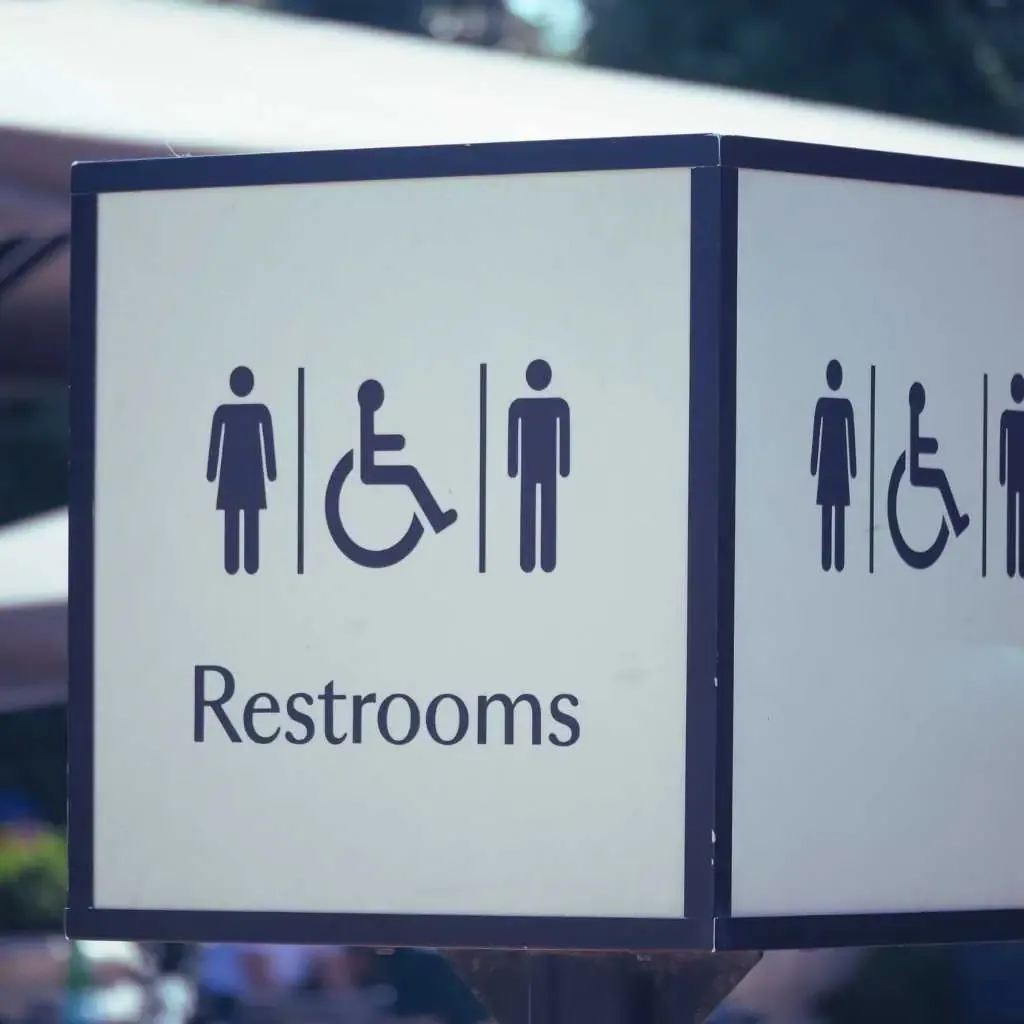
Most Fresno business owners don’t have time to keep up with the evolving ADA guidelines, Title 24 updates, and physical changes on their property. That’s where a proper ADA maintenance plan comes in. But not all plans are created equal.
Here’s what you should expect from one that actually protects you.
CASp Inspection Schedule and Re-Verification
The plan should include regular CASp inspections for commercial buildings not just once at the start, but at pre-set intervals (typically annual or bi-annual) to ensure your property stays compliant as rules evolve or new barriers emerge.
Initial site inspection to identify current violations.
Re-verification inspections after repairs or renovations.
This builds a defensible timeline if legal action ever arises.
Monitoring Physical Changes Like Renovations
Every time you update flooring, adjust shelving, change counter heights, or reconfigure space—your accessibility could be impacted. A good plan will:
Track these changes proactively, flagging any impact on ADA compliance.
Include re-inspections after major projects to validate updates.
This protects you from well-intentioned updates accidentally creating new violations.
Staff Training and Reporting Templates
ADA compliance isn’t just structural—it’s operational. Your team needs to know what to watch for.
Some plans include on-site training or video modules for staff.
Others provide customized checklists or issue reporting templates to make internal monitoring easier between inspections.
This spreads responsibility and awareness throughout your organization.
Emergency Repairs or Timeline Responses
A key feature of higher-tier plans is response support when problems arise. Whether it’s a complaint, a legal notice, or a broken ramp, these plans:
Set response timelines for high-risk issues (like blocked access routes).
May connect you with ADA-compliant contractors for quick fixes.
This can make the difference between a resolved issue and a lawsuit.
How ADA Plans Reduce Your Legal and Financial Risk
Fresno businesses don’t just face fines for non-compliance—they face real financial and reputational risk. A proper ADA maintenance plan doesn’t just check boxes. It actively reduces the likelihood of legal action and can cushion the blow if a complaint does occur.
Reduction in Predatory Litigation
One of the major reasons ADA lawsuits spike in cities like Fresno is because of opportunistic filings—plaintiffs or legal firms targeting multiple small businesses in a geographic area with the same type of complaint.
A verified CASp report and documented maintenance plan can:
Demonstrate “qualified defendant” status under California law.
Trigger a 90-day legal hold period to correct issues before penalties escalate.
Make it harder for predatory lawsuits to gain traction.
This alone saves thousands in potential legal fees and settlements.
Smoother Settlement Negotiations With CASp Reports
If a lawsuit is filed, having CASp documentation changes the entire tone of the process. Courts and opposing counsel view businesses with proactive compliance efforts more favourably. It shows good faith.
You can present proof of ongoing efforts and completed fixes.
Settlement terms often become less aggressive or punitive.
In some cases, lawsuits may even be dropped once CASp documentation is reviewed.
Insurance Premium Reductions (In Some Cases)
Some commercial insurance providers in California are beginning to factor ADA risk into premium pricing—especially in retail and hospitality sectors.
While it’s not universal, having a documented maintenance plan may help you:
Negotiate lower rates by showing reduced litigation exposure.
Qualify for risk mitigation discounts where available.
It’s worth discussing with your insurance broker once you’ve implemented a plan.
Real-World ROI: Ongoing Compliance vs Retroactive Fixes
Let’s be blunt—ADA violations cost more when you fix them after being sued.
A $400 missing sign can become a $10,000 settlement.
A $2,000 ramp project becomes a $25,000 emergency job if done post-complaint.
Ongoing maintenance plans allow for phased, planned improvements. That means:
Better budgeting across quarters or fiscal years.
Avoiding rushed compliance work that’s more expensive and stressful.
How Much Does an Annual ADA Maintenance Plan Cost in Fresno?
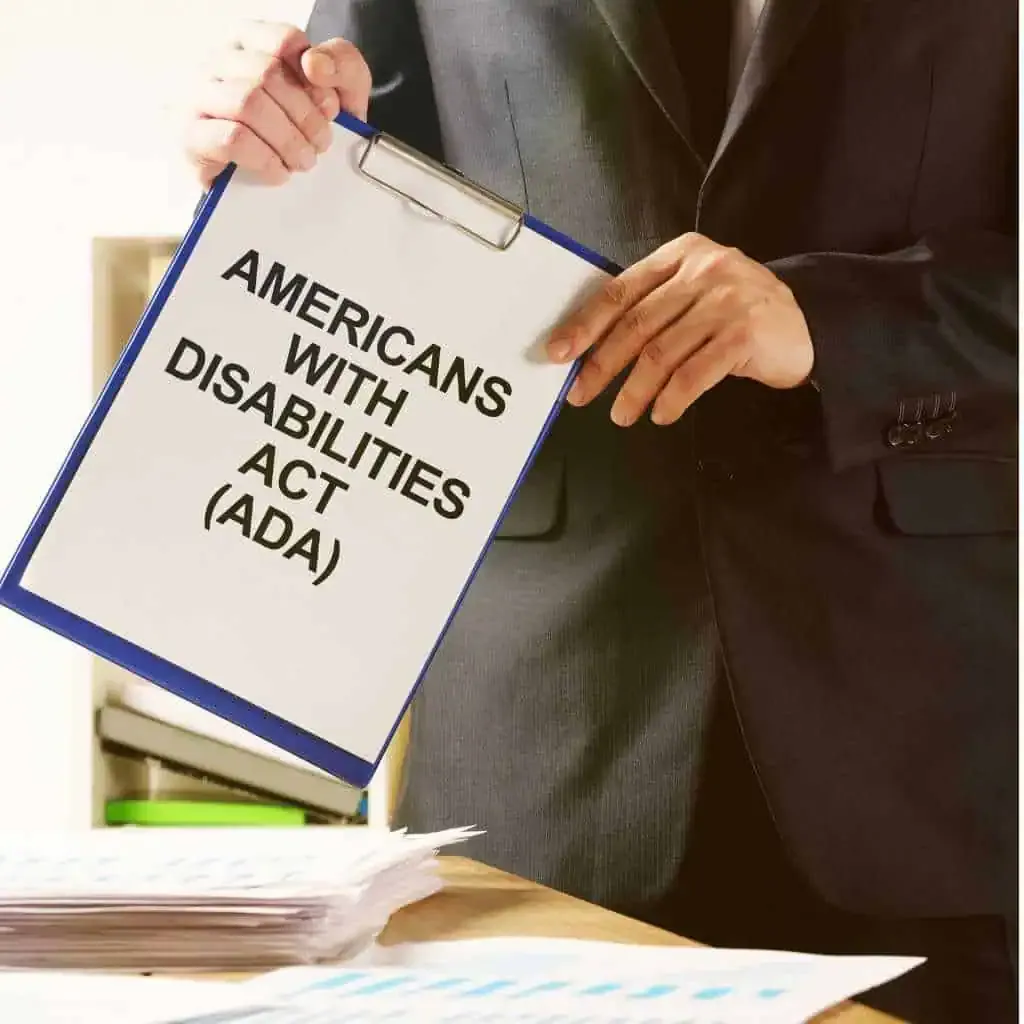
Based on published CASp consultant rates and real-world averages in California, Fresno business owners can expect to pay:
$900 to $1,800 for an initial CASp inspection of a typical commercial space
$75 to $250 per month for ongoing ADA compliance support for small to medium sites
$250 to $500+ per month for larger or multi-tenant properties needing more oversight
Here’s how those costs usually break down:
Monthly plans often include rolling inspections, physical site checks, and faster turnaround on documentation updates
Annual plans may be better for businesses with static layouts or fewer remodels—these usually bundle inspection + reporting in one go
For example, a small café or shop may be quoted around $1,200/year, while a multi-suite medical plaza could fall closer to $4,000+ annually, depending on complexity and scope.
Some consultants also offer digital accessibility audits as an add-on, which is worth considering if your website isn’t WCAG 2.1 compliant.
While costs vary, the upfront expense is typically far lower than the legal fees, fines, and remediation expenses triggered by a lawsuit.
If you’re not sure what kind of support you need, it’s worth exploring what’s included in an ADA maintenance plan from a certified inspector, especially if you’re managing a retail or medical space.
How to Choose the Right ADA Consultant in Fresno
If you’re hiring someone to oversee your ADA maintenance plan, the first step is verifying that they’re a Certified Access Specialist (CASp). This certification is issued by the California Division of the State Architect, and it ensures the individual is trained in both state (Title 24) and federal (ADA) accessibility standards. You can confirm certification status through the official CASp directory.
Here’s what to look for:
CASp certification with active status
Experience with Fresno County codes and permitting
Past inspection history in your industry (especially retail, restaurants, or medical)
Be cautious of vendors who:
Offer “ADA checklists” or cheap audits without formal documentation
Can’t provide examples of completed CASp reports
Don’t mention California-specific codes like CBC/Title 24
Local knowledge matters too. Fresno’s zoning quirks, legacy buildings, and redevelopment zones can affect compliance scope. A good consultant should already understand these nuances and build them into the inspection plan.
If you’re weighing your options, consider this: a good ADA consultant doesn’t just spot violations—they help you reduce risk, document defensible steps, and stay ahead of future claims.
Steps to Get Started with a Compliance Plan Today
If you’re running a business in Fresno and haven’t thought seriously about ADA compliance beyond your initial setup, now is the time to act. The longer you wait, the more vulnerable you are to lawsuits, fines, and forced renovations.
So, where do you begin?
Schedule an Initial CASp Inspection
This is your baseline. A certified access specialist will assess your current accessibility status under both ADA and California Title 24. You’ll receive a report outlining areas of non-compliance, risk levels, and recommended fixes.Create a Compliance Timeline
You don’t need to fix everything overnight. A phased plan—prioritising high-risk issues like inaccessible entries or parking violations—is usually more manageable and defensible in court if claims are made later.Set Up Annual Review Cycles
ADA compliance isn’t a one-and-done effort. Whether you update signage, remodel a restroom, or repave your lot, changes must stay aligned with the latest standards. Yearly reviews keep your plan relevant and protective.Combine With Website Accessibility Audits
Digital ADA compliance is increasingly scrutinised. If you run an e-commerce site, booking portal, or provide public-facing information online, consider pairing your physical compliance plan with a WCAG-based web audit. It’s a smart, proactive move.
Starting this process now not only protects your business legally—it shows customers and employees that accessibility matters. If you’re not sure who to call first, check out this ADA inspection service in Fresno to get a sense of what’s typically involved.
Before You Get Fined: Fresno Business Owner Questions Answered
Many business owners don’t take action until they’re already facing a complaint—but ADA compliance works best as a preventive strategy. Let’s walk through some of the most common concerns Fresno owners raise before (or after) trouble hits.
Do I need a CASp inspection every year in Fresno?
No, not legally. But many businesses opt for annual inspections to stay current with changing facilities, staff turnover, or new construction. An annual CASp inspection in Fresno can help you maintain legal protection and reduce the chance of lawsuits.
Can a compliance plan stop an ADA lawsuit that’s already been filed?
No, but having a documented ADA plan and previous CASp reports can help in legal negotiations. Courts often look favorably on businesses that demonstrate good-faith efforts, even if some issues still exist.
Does a maintenance plan include digital accessibility?
Usually not by default. Most ADA maintenance plans focus on the physical premises. However, digital compliance is becoming just as important—especially for businesses with online booking, e-commerce, or customer portals. You can explore ADA website compliance services separately or as an add-on.
How fast must I fix issues once they’re reported?
It depends on severity, but it’s smart to act quickly. California law doesn’t set hard deadlines in all cases, but if an issue is noted in a CASp report, addressing it within 60–90 days is a good rule of thumb. Courts and attorneys often check whether you’ve been responsive.
Can ADA compliance affect my insurance or lease terms?
Yes. Some insurers offer reduced premiums for businesses with ADA-compliant properties or active CASp documentation. Landlords may also shift compliance responsibilities to tenants in leases—so read your agreement carefully.
Next Steps for Fresno Businesses
ADA compliance isn’t just about avoiding lawsuits. It’s about creating a business that’s accessible, accountable, and built for long-term success. A well-structured ADA maintenance plan helps you stay ahead of legal changes, avoid costly surprises, and show your customers you take accessibility seriously.
Whether you run a single storefront or manage a larger facility, having a documented plan puts you in control. From routine CASp inspections in California to scheduled updates and accessible design reviews, Fresno businesses have clear paths forward.
If you’re unsure where to begin, start by speaking with an ADA consultant who understands California law and Fresno’s building code. Getting expert eyes on your property is the first step toward a smarter compliance strategy.
For professional help with annual ADA compliance maintenance, digital accessibility, or physical property inspections in Fresno and surrounding areas, visit us to learn how we support local businesses across California.
Trusted Legal and Accessibility Resources
For readers who want to go deeper or verify the legal references discussed above, here are reliable sources specific to ADA compliance and California law:
California Division of the State Architect – CASp Program
https://www.dgs.ca.gov/DSA/Programs/programCert/casp
Learn more about Certified Access Specialists, inspection types, and how the CASp program protects business owners from unwarranted legal claims.ADA.gov Small Business Compliance Guide
https://www.ada.gov/resources/small-business/
This federal resource explains common obligations, required features, and examples tailored to small business owners.California Title 24 Building Code Portal
https://www.dgs.ca.gov/BSC/Codes
Access the full set of California Building Standards that intersect with ADA, including updates to restroom access, path of travel, and signage requirements.Fresno County Planning and Building Department
https://www.co.fresno.ca.us/

Emily Johnson
Certified Access Specialist (CASp) Inspector

Written by Emily Johnson
Emily Johnson is a Certified Access Specialist (CASp) Inspector and is passionate about making spaces accessible for all. With over 10 years of experience and degrees in Civil Engineering and Architecture, she inspires others while championing ADA awareness.
RECENT POSTS
CATEGORIES
Get a free quote today!
By clicking “Submit”, you are signing up to receiving emails from us. You can unsubscribe whenever you like. SMS rates may apply.
Want To Know More About ADA Accessibility And How To Get Compliant?
Check out our blog!

